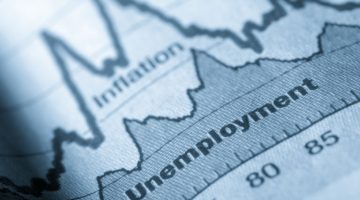By MOHAMED HAMALUDIN
Colin Kaepernick, who sent shockwaves last season throughout the National Football League (NFL) and the rest of the nation by sitting and then kneeling when the National Anthem was being sung, has not been signed by any team as of this writing.
Some analysts argue that this is because the teams are still weighing their options and he may well be hired before the new season starts.
But other observers maintain that Kaepernick is being punished because he took a political position when he chose to make a high-profile act to protest police killing of young black men.
Indeed, Kaepernick may yet be signed as at least a back-up quarterback, even though his statistics place him way ahead of some QBs who have already been given contracts. But his exercise of his constitutionally protected freedom of expression in solidarity with the Black Lives Matter movement unleashed a flurry of vicious denunciations by those who have sought to demonize his action, especially white supremacists masquerading under the new label “alt-right.”
Some saw it as “race baiting;” at least one person suggested that Kaepernick was a satanist.
And Republican Congressman Steve King of Iowa accused the quarterback of being influenced by his Muslim girlfriend, converting to Islam, becoming anti-American and “sympathetic” to the Islamic State group. This ridiculous claim drew a rebuttal from Kaepernick, who told USA Today that he considered it to have originated from “people’s fear … as well as Islamophobia in this country” and comments from Donald Trump as a presidential candidate.
“Trump had said Kaepernick “would be better off playing in another country” and more recently has asserted that NFL teams are steering clear of the former San Francisco 49ers QB because the owners fear he would call them out on Twitter.”
Trump had said Kaepernick “would be better off playing in another country” and more recently has asserted that NFL teams are steering clear of the former San Francisco 49ers QB because the owners fear he would call them out on Twitter. That, however, is unlikely to be the case.
Mike Freeman of Bleacher Report said about 70 percent of NFL general managers “are unwilling to sign Kaepernick, not because they don’t believe he can play but as punishment for expressing his political beliefs,” according to a Guardian story by Jack Moore.
“The rest genuinely hate him and can’t stand what he did,” an unnamed general manager told Freeman. “They want nothing to do with him. They won’t move on.
They think showing no interest is a form of punishment. I think some teams also want to use Kaepernick as a cautionary tale to stop other players in the future from doing what he did.”
Why such vitriol? The future of the NFL is probably at stake, however far-fetched that may be. The league has built its reputation as a wholesome, non-political sport, buttressed by an almost inseparable intertwining with the military that allows it to profit from patriotism, as the Bleacher Report’s Michael Schottey put it back in 2014.
It is quite possible that Kaepernick, in challenging an important symbol of nationhood, is seen as a direct threat to that comfortable scenario.
Of the 31 individual owners of the 32 NFL teams, the 32nd — Green Bay Packers -is owned by public shareholders, 18 are billionaires. They have a vested interest in suppressing anything, including player actions, that could affect the business of football.
But there is another side to the NFL. Each team is allowed to have a maximum of 53 players, making for a maximum total of 1,696. About 68 percent of the players are black, for a total of 1,153.
Without them, there is no National Football League.
Many of the players are paid tens of millions of dollars and while a handful did join Kaepernick in his protest, the vast majority did not. Now they have another opportunity to show solidarity with the apparently besieged brother. They may indeed be waiting to see whether the league will snub him. If it does, they have a responsibility to flex their collective muscle in his defense.
Kaepernick must not be allowed to be made a scapegoat, as happened with other athletes who dared to be courageous enough to take on unfairness and injustice, such as the National Basketball Association’s Craig Hodges, Olympians John Carlos and Tommie Smith and, most famously, Muhammad Ali.
This is not simply a matter of police brutality towards blacks, important as that is, but the right of blacks, as Americans, to protest without fear of retaliation.
And, lest it be forgotten, as in the case of activists such as Martin Luther King Jr., such protests have usually led to making America better and the union less imperfect.













No Comment